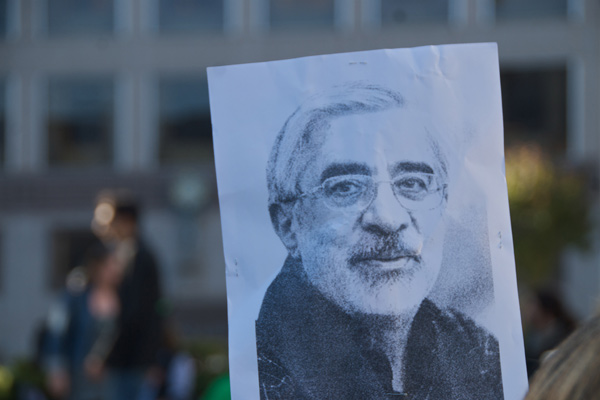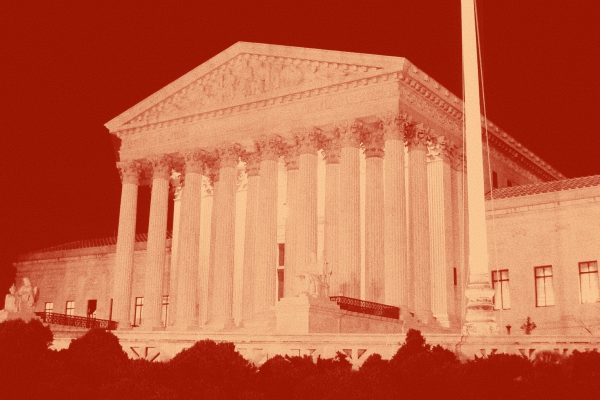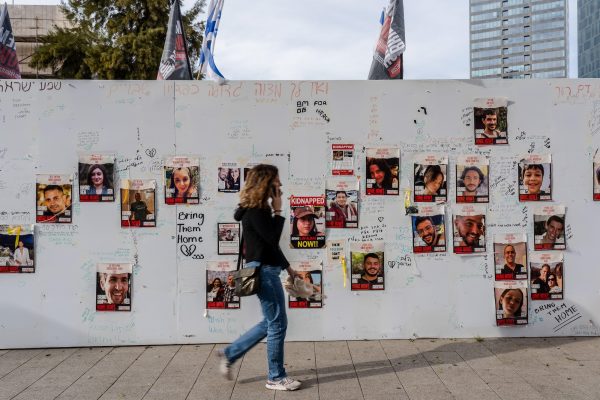The meeting last week between Secretary of State John Kerry and Iran’s Foreign Minister Mohammad Javad Zarif and the brief phone conversation between Presidents Barack Obama and Hassan Rouhani demonstrate the determination of the two nations to address both the civil war in Syria and the ongoing dispute over Iran’s nuclear program through diplomacy rather than military action. Such political will at such a high level is new, and will be crucial for resolving the tension. But even with the governments’ commitment, progress will be step-by-step and relatively slow. The leaders of Iran and the United States will have to manage the powerful influence of opponents both within Iran and the United States, and in the surrounding region, such as Israel, and the Arab nations of the Persian Gulf, led by Saudi Arabia, that wish to disrupt the political process. This requires cooperation between Iran and the United States in terms of which nation should control what opposing force, and a common understanding of how to gain the trust of others.
Iran’s hardliners
Iran’s hardliners, including members of parliament, newspapers like Kayhan that serve as a mouthpiece for the military, and the followers of certain ayatollahs, have experienced growing power in an atmosphere of war, economic sanctions, and foreign threats, and have set up a corrupt power structure that benefits them immensely. They will not give up their ill-gotten privilege easily. The economic sanctions have only increased their power, because secret and illegal transactions are the only way to circumvent them, and they control the black market.
The Iranian people are eager for the tangible results of the rapprochement between the two nations—an end to economic sanctions and improvements to their daily lives. However, an agreement will not come quickly, and extremists will have the opportunity to denounce the political process as ineffective. They have already claimed that the meeting between Kerry and Zarif and the phone call between Obama and Rouhani only damaged the “epic resistance of the Iranian people against the arrogant power [the U.S.],” and “Iran’s revolutionary dignity.” Doubting the capability of the peace process, and wanting to preserve this “dignity,” the revolutionary forces may continue their resistance against the United States despite the official relationship.
Israel’s radical forces
Israeli extremists, both within and outside of the government, want a war between Iran and the United States. In order to mask their own unwillingness to reach an agreement with the Palestinian people, Benjamin Netanyahu and his supporters have tried to spread Iranophobia. Since 1992, Netanyahu has constantly talked about the nuclear weapons that Iran would make over the next few years, even though Iran has never successfully made nuclear weapons.
Mahmoud Ahmadinejad, Rouhani’s predecessor, reinforced the antagonism between Israel and Iran. Ahmadinejad’s denial of the Holocaust served to promote his public image as a religious hardliner and to give him an excuse to repress internal dissent. But Islam and Judaism share the same traditions and face similar, secular persecution, so no true Muslim can deny the historical events of the Holocaust or the slaughter of innocent people. The Holy Quran states explicitly (Nesa: 164) that God spoke to Moses directly (but not to Prophet Muhammad), and that the Prophet stated that he was continuing the traditions of Moses and Jesus (Al-e emran: 64). The Holy Quran repeats 15 times that it confirms what the Torah and the Gospel have said, and tells the faithful that they should act according to the Torah and Gospel teachings in order to demonstrate their true faith (Maedeh: 68). Moreover, much of the teachings of the Torah are repeated in the Quran with only minor modifications. Similarly, Ahmadinejad’s rejection of the existence of Israel is inhumane, and must be condemned.
Ultimately, Netanyahu used Ahmadinejad’s stance to advocate successfully for crippling sanctions against Iran, and to draw international attention away from Israel’s peace process with the Palestinians. When Hassan Rouhani was elected, Netanyahu began “mourning” Ahmadinejad’s departure and claimed that Rouhani, a man who has in fact condemned the Holocaust and does not deny Israel’s right to exist, is a “wolf in sheep’s clothing.” Zarif also referred to Holocaust as a “heinous crime” and “genocide,” but Netanyahu is confident that he will be able to use Israel’s lobby against the re-establishment of friendly relations between Iran and the United States.
Saudi Arabia
The Arab nations of the Persian Gulf, led by Saudi Arabia, are also opposed to any improvement in relations. According to the Israeli newspaper Haaretz, Arab nations are concerned about rapprochement between Iran and the US because they want to maintain their political influence in the region. It reports that Adel al-Jubeir, Saudi Arabia’s Ambassador to Washington, is quietly talking to proponents of war in the Middle East and supporters of Israel in the United States, and that Saudi Arabia might establish diplomatic relations with Israel in an effort to prevent a thaw in U.S.-Iran relations.
Both Iran and the United States must reassure the Arab nations of the Persian Gulf that any improvement in their relations will not disrupt nearby nations. Saudi Arabia’s policy toward the Middle East is directed by Prince Bandar bin Sultan, who has been a key player in sending forces to Syria in support of the rebels. Without an agreement between Saudi Arabia and Iran, which supports the Syrian government, the crisis in Syria will not be resolved. Therefore it will be crucial for Rouhani to lower tensions between Iran and the Arab nations. In an effort to prevent democracy from replacing their authoritarian political systems, these nations have worked to transform the Arab Spring into a sectarian war between the Sunnis and Shiites. In an effort to prevent democracy from replacing their authoritarian political systems, they [the Arab nations] have worked to transform the Arab Spring into a sectarian war between the Sunnis and Shiites. They must recognize that such a war is not in their national interests, not only because such a war will eventually engulf them too, but also because of Iran’s strategic position, dynamic and educated population, natural resources, and national cohesion between various ethnic and religious groups that will enable it to prevent the spread of such a war to its territory.
A roadmap for the region
Iran and the United States can work together to develop a plan for rebuilding peaceful relations, but this plan must be based on an agreement between all the nations in the region, and guarantee their security. It must contain the following elements:
It must reject double standards, applying international laws and agreements equally to all nations.
It must reject military intervention in favor of international law as the vehicle for developments. Any collective agreement for the region must accept that use of military force is permissible only in self-defense, or on the order of the United Nations Security Council.
It must declare the region free of any weapons of mass destruction (WMD). The international agreements governing WMDs, such as the Treaty on the Non-Proliferation of Nuclear Weapons, the Biological and Toxin Weapons Convention, the Convention on Cluster Munition, and the International Covenant on Economic, Social, and Cultural Rights must be implemented across the board, and no country may remain exempt. The UN Security Councilmust order elimination of all WMDs from the Middle East, and nations that have not signed, such as Israel, must do so.
It must support a fair, two-state solution for the decades-old Israeli-Palestinian conflict. Millions of Palestinians should be able to lead normal lives with a country of their own, and enjoy the same rights as citizens of other nations. The Palestinians themselves have to decide what type of peace treaty they are willing to accept, and other nations, such as Iran, can only advocate for human rights. Perhaps, the plan by the Middle East Quartet—the United States, Russia, the European Union, and the United Nations—for a two-state solution is the best available option.
It must find a way to take on extremist groups. Every group that uses violence to achieve a political goal, including religious and ethnic groups, must be confronted. At the same time, the elimination of Islamic groups from the political process, as evidenced by the recent events in Egypt, will only drive these groups to take up arms.
It must oppose changing national boundaries through military force, and guarantee the territorial integrity of all nations in the region must be guaranteed.
It must advocate a return to a state of peace and stability through a reduction in military preparedness.
Iran must also build a relationship with the U.S. Congress by talking to its members and inviting them to Iran to see, first hand, the realities of the Iranian society.
The main fissure in the region is between democracy and dictatorship. If the Islamic Republic of Iran wants to reenter international politics, it must respect the human rights of its citizens, develop a democratic system at home, and seek peace abroad. Those who oppose the Islamic Republic, both within Iran and in the Iranian diaspora must recognize that democracy requires the balance of power between the state and civil society. For a peaceful transition to true democracy, the people must be organized and included in the democratic process in order to foster and maintain this balance.
Read More on the what Rouhani’s election means for Iran and the region.








